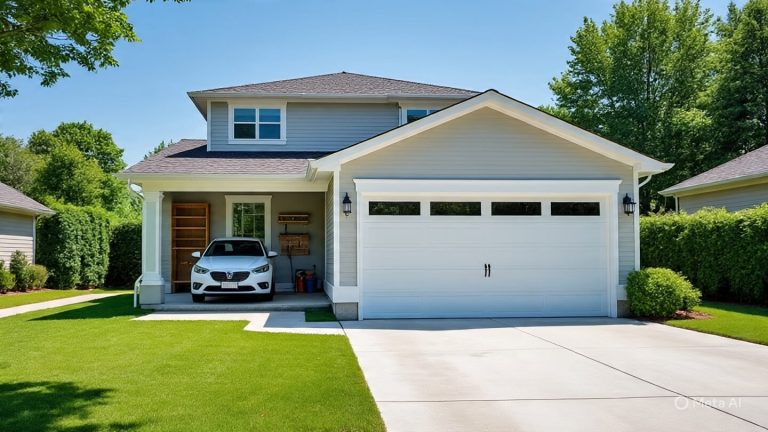How Long Does a Home Inspection Take? Everything You Need to Know
When you’re in the process of buying a home, one of the most important steps is the home inspection. It’s a crucial part of the home-buying journey, helping you understand the condition of the property you’re about to purchase. But one common question that often comes up is: How long does a home inspection take? In this article, we’ll dive into this question and explore the factors that affect the duration of a home inspection, what to expect, and why it matters.
What is a Home Inspection?
A home inspection is an examination of the physical condition of a property. It’s usually conducted by a professional inspector who checks various aspects of the home, including its structural integrity, electrical systems, plumbing, HVAC, and more. The inspector will provide you with a detailed report, which will help you identify any potential issues that could affect the home’s value or require repairs.
How Long Does a Home Inspection Take?
The typical home inspection takes between 2 to 4 hours. However, this can vary depending on several factors. Larger homes, older homes, and homes with complex systems or significant issues may require a longer inspection period. Smaller homes or condos may take less time. Generally speaking, a home inspection is a relatively quick process that provides you with valuable insights into the condition of the home.
Factors That Influence How Long a Home Inspection Takes
Several factors can influence how long a home inspection will take. Let’s take a closer look at some of the most important ones:
1. Size of the Home
One of the biggest factors in determining how long a home inspection takes is the size of the property. A larger home with more rooms, bathrooms, and levels will naturally take longer to inspect. A smaller, more compact home will typically require less time.
2. Age of the Home
Older homes often require a more thorough inspection, which can increase the time it takes to complete the process. In older homes, you may find outdated systems, potential foundation issues, or other unique problems that require more attention from the inspector.
3. The Condition of the Home
If a home is in excellent condition, the inspection may go quickly. However, if the home has numerous issues—such as water damage, mold, or electrical problems—the inspector may need additional time to investigate these problems thoroughly.
4. Number of Systems and Components
The more systems and components a home has, the longer the inspection will take. A home with multiple air conditioning units, heating systems, or extra bathrooms, for instance, will need to be checked individually, adding time to the overall inspection.
5. The Inspector’s Experience
A seasoned home inspector may work faster than someone who is newer to the profession. However, keep in mind that speed should never compromise the quality of the inspection.
6. Type of Inspection
In some cases, the standard inspection may be supplemented by specialized inspections, such as for mold, pests, or radon. These additional inspections can add time to the overall inspection process.
What to Expect During a Home Inspection
During a home inspection, the inspector will systematically go through the home and evaluate its condition. Some of the areas the inspector will focus on include:
-
Roofing: The inspector will check for any damage, leaks, or issues with shingles, flashing, and gutters.
-
Foundation: Any signs of cracks or shifting in the foundation are identified.
-
Plumbing: The inspector will test faucets, check for leaks, and assess the water pressure.
-
Electrical System: The electrical panel, outlets, and wiring are inspected for safety and functionality.
-
HVAC: The heating and cooling systems are checked for performance and efficiency.
-
Windows and Doors: The inspector will check the condition of windows and doors, looking for drafts or other issues.
-
Appliances: If included in the inspection, the inspector will test appliances like the stove, dishwasher, and refrigerator.
Each of these systems and components takes time to evaluate, and the time spent on each section contributes to the total home inspection duration.
Why Does the Duration of a Home Inspection Matter?
Knowing how long a home inspection take can help you plan and set expectations for the day. Most inspectors will work with you to schedule a convenient time for the inspection. The length of the inspection also impacts the time it takes to receive the final report. Typically, you can expect to receive your home inspection report within 24 to 48 hours of the inspection.
Additionally, a thorough inspection ensures you don’t overlook any important details about the home. If the inspection is rushed, there may be issues that aren’t identified, potentially costing you down the line. Therefore, while a longer inspection may seem inconvenient, it’s important for the inspector to take the time needed to thoroughly assess the home.
How Long After the Home Inspection Should You Expect the Report?
After the inspection, the inspector will compile their findings into a report. This report typically takes 1 to 2 days to prepare. The report will include a summary of the condition of the home, a list of any issues or repairs needed, and sometimes even photos of problem areas.
If the inspector finds major issues, you may want to follow up with additional inspections, like a structural engineer’s review or a pest inspection. This can add more time to the overall home inspection process, but it can also provide you with further clarity on any potential concerns.
How Long Should You Be Present for a Home Inspection?
While it’s not required, it’s a good idea to be present during the home inspection. Being there allows you to ask the inspector questions in real-time and gain a better understanding of the property. Typically, you’ll be able to follow the inspector as they work, but they may need uninterrupted time to focus on certain areas. If you can’t attend the entire inspection, you can always ask for a summary of their findings afterward.
The biggest red flag in a home inspection is usually foundation issues. Cracks in the foundation, significant settling, or signs of shifting can indicate serious structural problems. These issues often require expensive repairs and can affect the stability of the entire house.
Another major red flag is water damage or mold. These problems can lead to health concerns, such as respiratory issues, and can also result in costly repairs. If the home has signs of ongoing moisture issues, it may indicate poor drainage, leaks, or even foundation problems.
Electrical issues are also a significant concern. Outdated wiring, exposed wires, or improper grounding can pose safety hazards, potentially leading to electrical fires. If there are multiple signs of electrical problems, it’s important to have a licensed electrician inspect the home further.
Roof damage is another critical red flag. Leaks or aging roofing materials can lead to water damage inside the home, and roofing repairs can be very expensive. If the roof has significant damage or shows signs of wear, it may require immediate replacement or repairs.
Lastly, pest infestations, particularly termites or rodents, can cause significant damage to the structure, insulation, and electrical wiring. If the home has signs of pest activity, it’s important to address the problem immediately as these infestations can escalate quickly, leading to costly repairs.
Conclusion
So, how long does a home inspection take? Generally, expect the process to last between 2 to 4 hours, though this can vary depending on factors such as the home’s size, age, and condition. It’s important to remember that while it may be tempting to rush the inspection, thoroughness is essential to ensure the home is in good condition and that you’re not facing unexpected costs down the line.
Taking the time to properly inspect the home can save you money, give you peace of mind, and ensure that you’re making a wise investment. Make sure to hire a qualified inspector, ask plenty of questions, and plan accordingly for the day of the inspection. After all, the more you know, the better your decision will be.
FAQs
1. What are the most common red flags in a home inspection?
The most common red flags include foundation issues, water damage or mold, electrical problems, roof damage, and pest infestations. These issues often signal potential safety concerns or costly repairs.
2. How serious are foundation problems in a home inspection?
Foundation issues can be very serious, as they affect the structural integrity of the home. Cracks, settling, or shifting foundations can lead to expensive repairs and, if left unresolved, may worsen over time.
3. What should I do if there’s water damage in a home I’m considering buying?
If water damage is found, it’s important to investigate the source of the problem. It could be related to leaks, plumbing issues, or poor drainage. Have a professional assess the extent of the damage and potential repairs before proceeding with the purchase.
4. How can I identify electrical problems during a home inspection?
Electrical issues are often revealed during the inspection process. Signs to look for include outdated wiring, exposed wires, faulty outlets, and issues with grounding. These problems can pose safety hazards, so it’s important to consult with an electrician if any concerns arise.
5. Is roof damage a dealbreaker in a home inspection?
Roof damage can be a major concern. Leaks or worn-out roofing materials may require significant repairs or even full replacement. It’s important to assess the extent of the damage and factor it into your decision-making process. A roof replacement can be costly, so negotiating for repairs or a price reduction may be necessary.
6. What are the signs of a pest infestation that I should look out for?
Signs of pest infestations, particularly termites or rodents, include droppings, gnaw marks, or holes in walls or insulation. Termites can cause severe damage to wooden structures, while rodents may damage wiring and insulation. If signs of pests are present, consider professional pest control services before proceeding.
7. Are minor issues in a home inspection a dealbreaker?
Minor issues, such as small cracks in the walls or cosmetic concerns, usually aren’t a dealbreaker. However, it’s essential to prioritize major problems that could lead to safety hazards or costly repairs. It’s always a good idea to address minor issues as part of the negotiation process, but they shouldn’t necessarily stop the purchase.
8. How can I negotiate after finding red flags in a home inspection?
If significant issues are found, you can negotiate with the seller to either have them repaired before closing or ask for a reduction in the price. In some cases, you may even request a home warranty to cover future repairs related to the identified red flags.
9. Can I back out of buying a house if there are major issues during the inspection?
If the home inspection uncovers serious issues that you weren’t aware of, you can usually back out of the deal, especially if your contract includes a contingency clause. It’s important to communicate with your real estate agent and consult legal advice if necessary.
10. Should I always hire a specialist for further inspection if a red flag appears?
Yes, it’s always a good idea to hire a specialist (like a structural engineer, electrician, or pest control expert) for a more detailed evaluation if a red flag appears during the home inspection. These professionals can provide you with a clearer understanding of the issue and help guide your decision-making.
For more article visit: Homeglowup





